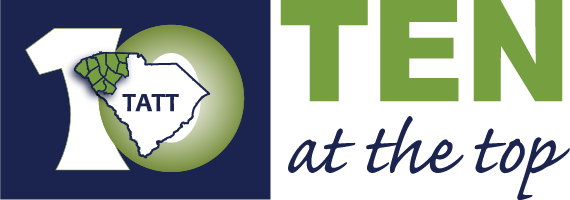
Amy Robichaud, Founding Chair, InnoVision Awards
with Sharon Purvis
The InnoVision Awards, established in 1999, recognize innovators in six categories: technology development, technology integration, small enterprise, education, sustainability, and community service, in addition to a young innovators award. This year, in light of the pandemic and the surge of innovation it has produced, a seventh category has been introduced: COVID-19 response.
In a normal year, there are regional forums that culminate in an awards event in November—but this is not a normal year, so we asked Amy Robichaud, founding chair of InnoVision Awards, to tell us about how they are embracing this new world of virtual events.
Q: Your awards event is late in the year (November), which means you’ve had some time to anticipate changes you’ll need to make in order to honor your finalists and winners. Can you talk about how you’ve pivoted to a virtual format for your forums as well as the main event?
The pandemic accelerated innovation for us just as it has for many. The first challenge was presentation of our Forum Series, which has historically consisted of live, in-person events. We successfully transitioned to a live webinar series and changed the focus of the series to “Leadership Beyond the Crisis.” The series explores the challenges and opportunities presented by COVID-19 and the resulting successful pivots executed by some of our 2019 finalists and winners. The stories are impressive and instructive for any time of rapid change and cover numerous types of innovation across the entirety of business functions. (Click here to watch a video of Contec’s pivot story. Upcoming webinars will feature Humimic, Prisma Health and ZVerse.)
Transitioning to a webinar series has actually increased participation for the forum events. Time to travel to live events limited attendance and reach of forums of prior years. Also, we record these webinars and provide replays on our website, increasing the reach of the insights shared by the featured innovators.
Q: The awards event is the culminating event of the year. How are you approaching that in this environment?

Van Robotics was the 2019 InnoVision Award winner for their adaptive robot tutors.
We have been talking with long-time sponsors, former finalists and winners, and those who attended the awards event for the first time last year to understand the value of the experience to them. All left the event with high energy and enthusiasm, inspiration and encouragement, networking and new connections, and valuable connections within the InnoVision community.
We are working on creative approaches to facilitate targeted connections and “organic” virtual networking as naturally as possible—isn’t everyone? Fortunately, several of our board members are attending other virtual events within the next month, so we will have experienced a number of different networking approaches and can combine best practices.
I have often referred to the InnoVision awards event as “watching magic happen”—seeing former winners, board members, or finalists seek each other out after the event to learn more about their innovation, offer guidance or introductions, or talk about potential collaboration. We will likely have to do more homework and orchestrate introductions in advance of the event, but that again will increase the value of the InnoVision experience.
Q: Have you used this time to make other organizational and procedural changes, or to reach new audiences?
This crisis has accelerated change and innovation for all organizations, including InnoVision Awards. Holding virtual events enables us to reach a broader audience. One of our board members has taken on the charge of building our visibility and activity on social media to reach new audiences. In addition to visiting the InnoVision Awards website, you can now follow InnoVision Awards on LinkedIn, Facebook and EventBrite.
We are also collaborating with other local, regional and state organizations to build visibility of, and access to, available resources within the entrepreneurial and innovator ecosystem.
Q: You have a bit of a head start on taking your awards event to a virtual platform in that you already use well-produced videos to introduce the finalists, and those will translate well to an online event. Do you see other advantages to a virtual awards event?
You are so right. The finalists’ and winners’ videos are the backbone and highlight of the event. They provide the energy, the enthusiasm and optimism that everyone carries away with them.
The biggest advantage of a virtual awards event is the ability to deliver that energy, enthusiasm and optimism to a larger, more diverse, more far-reaching audience, and for a longer period of time—on demand.
With the barriers of travel, as well as cost to attend, now removed, students can “attend” and be inspired; a larger number of employees of the honored organizations can participate and celebrate; more family members can join in honoring the value and contributions made by their loved ones; and more communities can take pride in the accomplishments of their local businesses and organizations. The visibility and acknowledgement of the innovators and level of innovation within SC will be greatly increased.
Q: The program is really about the innovators, and innovation is going to be the thing that helps us to beat this virus and get us back to normal—or usher in a new normal. Can you talk about the new COVID-19 category that you’ve introduced this year?
We saw SC companies and organizations rising to the challenges and needs generated by this pandemic. The stories were inspiring and impressive. We wanted to acknowledge organizations that pivoted to assist our communities.
Knowing that the innovations might span a wide swath of needs, we created a COVID-19 Response Award and received close to 20 applications. The range of entries is wide and the independent judges, who reside outside of SC, will likely acknowledge winners in subcategories that could encompass research, new products or services, community support and education.
